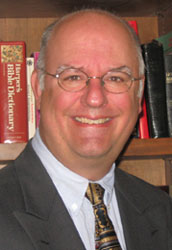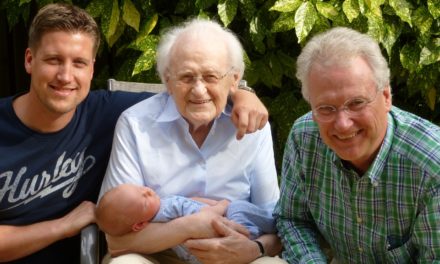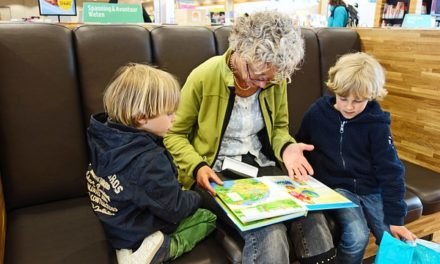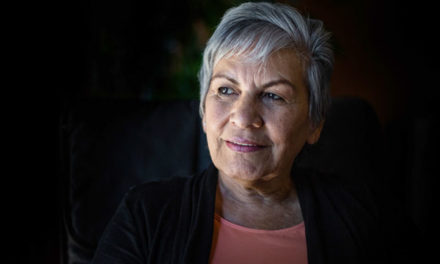by Grant Goodvin
Sam and his wife Linda are very concerned about the legacy they are leaving to their children and grandchildren. They have a lot to consider: a family business, a moderate amount of wealth, and even more important, values that they hold dear and have tried to instill in their family through the years.
They want to discuss these matters openly as a family, but they’re afraid of causing tension or really upsetting someone. Last time they tried to discuss their “legacy,” they noticed some hints of anger in several family members.
Their daughter and two sons have their own families and are doing fine in general, although they seem to lack a sense of independence. They’re counting on the family business to provide for their needs many years into the future, and they aren’t above issuing threats of broken relationships if it appears that their dreams of future security could be in jeopardy. A few times, almost in jest, Sam and Linda have said to each other, “Well, in a few years we’ll be gone, then they can deal with all of this.”
This example is actually fictional, but is based on numerous real-life situations I have seen over the years when I have assisted families with estate planning. Too often, the younger generation feels entitled and never develops a solid work ethic, problem-solving skills, or other key qualities. And those in the older generation, the grandparents, are often blind to the dynamic that if they don’t effectively mentor family members with healthy communication through estate transitions and other potential challenges, the family faces a great risk of coming apart after the older generation has passed on.

Typically when we think of legacy, we think of money or property, an inheritance that we’re passing on to someone. In my years as a practicing attorney, I drafted wills and trusts for people who wanted to ensure a smooth transfer of property upon their deaths. And I’ll be the first to admit that this is very important and helpful. People who don’t take the time and effort to draw up proper legal documents risk leaving their children and grandchildren in difficult situations, and they may have to wait months or even years for everything to be resolved. So, by all means, take your material legacy very seriously.
However, estate planning that only considers physical property will be seriously deficient. As we think about our “legacy,” we should be focusing not only on physical property but also on shared values, worldviews, and family experiences. We should devote more of our attention to transmitting our heritage than leaving an inheritance.
Communication is Key
We may lament how unprepared the next generation is for some situations, but how faithful have we been at preparing them to resolve potential issues in a responsible way? We must have important discussions with our family members.
How do you as a grandparent view the legacy of family? How do you mentor your family members as you communicate about this? Have you discussed with them what you want to accomplish through your estate plan regarding physical property? More importantly, have you discussed with your family what you want to accomplish through the heritage of beliefs, values, and relationships that you establish and leave behind?
Do your children and grandchildren know your world-view? Do they know your answers to questions such as: Where did we come from? What happens when we die? What is our purpose? Everyone operates from a worldview and has assumed answers for these kinds of questions, and families that take time to discuss and clarify their answers will build the right kind of legacy. They will also increase the likelihood of a successful estate transition—preserving harmony within family, providing a process for resolving conflict, and optimizing the long-term benefit of physical property.
These discussions reflect mentoring that occurs in families, and it’s up to us to make it happen! Parents are indispensable in this process, and the role of grandparents cannot be underestimated. That thought can often be intimidating for grandparents. Remember when our children were young and they had a sibling conflict? We probably did not hesitate to intervene to help them find a solution. We had wisdom, experience, and a desire to resolve the situation, and we got involved.
However, many grandparents are reluctant to mentor their children and grandchildren on important matters related to their legacy—spiritual, physical, or moral. Maybe they believe that not getting involved is better than starting a conversation that could lead to a disagreement. But they should never say, like the couple in my example, “I won’t be here, so I don’t have to worry about what happens when I die. It’s not my responsibility.” No one wants to convey the concept that physical things are more important than people and relationships, but that’s exactly the sentiment expressed when grandparents refuse to evaluate how family values and beliefs translate into a successful estate transition.
A Matter of Trust
Think of someone you trust. Would you want that person to have the courage to initiate a discussion with you about an issue, even if it might be contentious? Most likely, your trust in that person would supersede the troubling aspect of the discussion. Do you have that trust relationship with your children? Your grandchildren?
In general, trust is a huge factor in helping us navigate through typical relationship challenges: hurtful comments and actions, excessive anger, different beliefs, different maturity levels, different lifestyles or different levels of success. These are common obstacles to family harmony, and I have seen them quite often during discussions about estate matters.
What does a trust relationship look like in real life? In an ideal situation, it’s something we have built with our children and grandchildren through the years, from the very beginning. There is relational equity we can rely on, and we are able to work through potentially divisive discussions.
If you haven’t established that trust over time, creating it now can be much more difficult, but it can be done. Most likely, you will need to humble yourself, admit mistakes and shortcomings, and ask for patience and understanding from family members. Tell them one of your top goals is to do what is best for them, and commit yourself fully to that course of action. Of course, as I mentioned earlier, there may be different worldviews and disagreement on what is really best for them, but with humility you can work through those issues.
Equal Love
There is another challenge that I commonly see grandparents face: they delude themselves into thinking that they must give each child equal amounts of their estate. That sentiment makes a lot of sense in theory, but it’s impossible in the real world—first, because physical property can never be distributed equally. Two cars and one house cannot be distributed to three adult children equally.
A second important factor is that each child and situation is unique. They have different families, different needs, different careers, and likely different goals and priorities. Maybe one child’s family lives near you, and another lives thousands of miles away. Maybe one grandchild has a big medical challenge. Maybe one of your children really values your family photos and mementos, and another one doesn’t. This is similar to when your children were young: trying to make sure one child’s 5th birthday gift was exactly equal in value to the next child’s gift, three years later, wasn’t worth all the mental and physical gymnastics. They were different kids with different needs and desires.
Of course, the children were concerned about being treated fairly—and they probably still are. But again, absolute equality is impossible when it comes to distribution of physical property. So I suggest a different mindset: seek to demonstrate equal love. It goes hand-in-hand with a trusting relationship. Equal love that is trustworthy from a parent or a grandparent says: Regardless of what happens, I will act in the best interest of each and every one of my children and grandchildren. They will all have different situations and needs, and the details may appear unequal in superficial ways. But I believe an equal love approach will lead to the best, most peaceful results.
When families try to operate with unequal love—regardless of equal or unequal distribution of physical property—they are almost sure to face bitterness, resentment and distrust. The negativity will be increased as each family member realizes that family’s value system is not healthy and not worthy of being duplicated.
These three ideas work together and build on each other: A trustworthy foundation allows transmission of values and a heritage that will strengthen the family. Families operating from that foundation affirm equal love, even in the midst of disagreement, and the process promotes communication and increases trust rather than separation and distrust.
As grandparents, you possess a narrative your grandchildren want to know about. They want to know about their roots. They want to hear about your experiences, your successes, your failures. Every family tree has a few weird branches; every family is dysfunctional at some level. Communication and trust help transform challenges into mentoring opportunities.
Here are some questions that may challenge you: Have you communicated to your grandchildren how you met and married? Have you told them about your job experiences, or about a teacher who impacted your life? Have you told each grandchild what you were doing and thinking when you were told he or she was born?
Have you communicated with your children about something good in your life that came from them, and said “Thank you”? Have you talked with them about your doubts and fears as a parent, and how you want to be there for them when they experience the same dynamic?
Grandparents, keep communicating with your children and grandchildren. And when there’s a tough situation to work through, begin by stating clearly that through any danger or difficulty, you will strive to do whatever is in their best interest. And keep at it!
.





